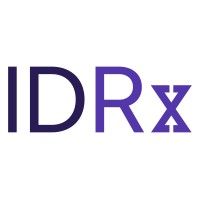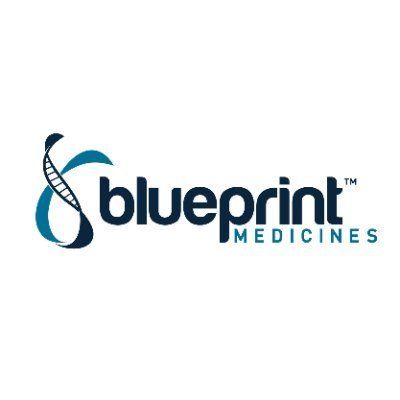预约演示
更新于:2026-02-01

IDRx, Inc.
更新于:2026-02-01
概览
标签
消化系统疾病
肿瘤
皮肤和肌肉骨骼疾病
小分子化药
疾病领域得分
一眼洞穿机构专注的疾病领域
暂无数据
技术平台
公司药物应用最多的技术
暂无数据
靶点
公司最常开发的靶点
暂无数据
| 疾病领域 | 数量 |
|---|---|
| 肿瘤 | 2 |
| 排名前五的药物类型 | 数量 |
|---|---|
| 小分子化药 | 2 |
| 排名前五的靶点 | 数量 |
|---|---|
| Tyrosine kinase | 1 |
| TYK2 x c-Kit | 1 |
关联
2
项与 IDRx, Inc. 相关的药物作用机制 TYK2抑制剂 [+1] |
原研机构 |
在研适应症 |
非在研适应症- |
最高研发阶段临床3期 |
首次获批国家/地区- |
首次获批日期- |
作用机制 Tyrosine kinase inhibitors |
在研机构 |
在研适应症 |
非在研适应症- |
最高研发阶段临床前 |
首次获批国家/地区- |
首次获批日期- |
100 项与 IDRx, Inc. 相关的临床结果
登录后查看更多信息
0 项与 IDRx, Inc. 相关的专利(医药)
登录后查看更多信息
110
项与 IDRx, Inc. 相关的新闻(医药)2026-01-30
·百奥信康
2026年1月26日,《Nature Reviews Drug Discovery》在线发表了2025年度全球生物医药行业的交易总结报告。本期公众号全文转载该报告,以飨读者。
交易撮合仍然是公司战略的关键部分,以应对2025年生物制药行业面临的挑战,包括药品定价压力、艰难的生物技术融资市场以及大公司在失去主要产品的专营权之前需要补充其产品线。在这里,我们涵盖了去年生物制药行业的兼并收购(M&A)和合作交易,以及消费和非处方行业、药物输送技术、合同研究和临床试验服务,但不包括设备、诊断、研究工具、动物保健和保险。
兼并收购(M&A)
2025年,并购交易总数为139起,与2024年的136起类似,但并购交易金额比前一年增加了一倍多,从2024年的810亿美元增加到2025年的1990亿美元,增幅为146%。交易量逐季下降,从第一季度的40起下降到第四季度的32起。而在价值方面则相反,今年最后三个月达到920亿美元,比其他每个季度高出约2-3倍(图1A)。
图1 | 2025年的生物制药交易。a. 兼并收购(M&A)。该图表包括全公司收购以及购买多数股权和少数股权。并购交易总量包括未披露价值的交易。b. 合作交易。合作伙伴交易总量包括未披露价值的交易。c. 伙伴交易破裂的数量。按治疗区域向下排列,括号内为比例。如果适用,涉及多个治疗领域的交易可能会被多次计算。* “其他”类别包括变态反应、耳鼻喉科/牙科、胃肠病学(非炎症性肠病)、血液学、产科/妇科、骨科、呼吸病学、风湿病学(非自身免疫性)、泌尿学和未特指。
2025年并购总额的巨大价值很大程度上是由于消费者医疗保健领域的一次重大收购,以及2025年最大的一笔交易(表1):金佰利公司(Kimberly-Clark)以487亿美元收购强生公司(Johnson&Johnson)的子公司KenVue。这几乎代表了1990亿美元价值的四分之一,但即使不包括这笔交易,2025年的并购价值仍然超过了2024年。2025年并购的最终金额也受到了十亿美元交易数量激增的影响,从前一年的27个增加到35个(补充图1A,B)。
补充图1 | 2025年30起价值≥10亿美元的并购交易按治疗领域分布。a | 按并购交易量的分布。b | 按并购交易价值分布。不包括涉及多个治疗领域或多元化公司的5笔交易(Mallinckrodt/Endo,Bain Capital/Mitsubishi Tanabe Pharma,Torrent/JB Pharma,BioNTech/CureVac和Shionogi/Torii和Akros)。
表1 | 2025年生物制药十大兼并收购
对先进分子疗法的需求是显而易见的,因为在这一领域发生了数十亿美元的收购,跨越了多个治疗领域。值得注意的是,RNA技术是其中五笔大交易的焦点,包括诺华公司的两笔交易。诺华公司以120亿美元收购了Avidity Biosciences公司,这是一家为神经科学适应症开发抗体-寡核苷酸缀合物的公司;诺华制药斥资17亿美元收购了Regulus Therapeutics及其领先的I期寡核苷酸Farabursen,用于治疗常染色体显性多囊肾病。艾伯维(Capstan)、百时美施贵宝(Orbital)和BioNTech(CureVac)也完成了以RNA为重点的收购。
肿瘤学是十亿美元并购群体中的一大焦点,占据了超过三分之一的交易量和19%的总价值。其中四笔交易集中在精准医疗领域,以赛诺菲以95亿美元收购Blueprint Medicines为首,后者的目标是癌症和其他疾病的基因改变。Ayvakit(阿伐替尼),是Blueprint的关键资产,被批准用于多种适应症,包括各种形式的系统性肥大细胞增多症和肥大细胞白血病。其他被收购的精准医疗公司包括Halda Therapeutics(强生以30亿美元收购)、Scorpion Therapeutics(礼来以25亿美元收购)和IDRX(葛兰素史克以12亿美元收购)。
在肿瘤学之后,代谢性疾病治疗是下一个最受欢迎的收购目标,在10亿美元并购并购群体中占14%并购量和并购价值。在今年第四大交易中,辉瑞在与诺和诺德竞争后,斥资100亿美元收购了治疗肥胖的企业Metsera。今年早些时候,诺和诺德公司以52亿美元的价格收购了Akero Therapeutics公司在肝病方面的资产。罗氏和BioMarin还分别在代谢公司(89Bio和Amicus Therapeutics)上花费了数十亿美元。
合作交易
生物制药合作趋势在2025年被颠覆,与2024年的活动相比,数量减少了20%,而总价值增加了41%。2025年签署的616项交易总价值为2660亿美元,而2024年签署的771项合作协议总价值为1890亿美元。
在2025年的前三个季度,交易数量一直在下降,直到年底才出现小幅反弹(图1b)。然而,尽管大多数交易发生在上半年,但交易价值持续低迷,直到下半年高价值交易的激增推动了交易价值较上年同期的显著增长。共有88笔交易达到10亿美元以上,而2024年这一类别的交易为69笔,主要交易的比例继续稳步增长。
按价值排名的2025年十大生物制药合作交易(表2),总价值为735亿美元,占当年总额的28%。这组交易凸显了全球药物开发商合作环境的转变,因为他们越来越多地将目光投向中国,寻求新的治疗方法和早期资产。总部位于中国的公司在向外授权活动中处于领先地位,参与了前十大交易中的六项,其中包括今年最大的一笔交易,即葛兰素史克(GSK)与江苏恒瑞医药(Jiangsu Hengrui Pharmaceuticals)之间价值125亿美元的协议。该协议为葛兰素史克提供了恒瑞的PDE3/4抑制剂HRS-9821的全球独家权利(不包括中国大陆、香港、澳门和台湾),该药物目前正处于慢性阻塞性肺病的临床开发阶段。葛兰素史克还从恒瑞获得了多达11个非临床项目的独家许可。
表2 | 2025年十大生物制药合作交易
这些高价值的协议也强调了人工智能(AI)驱动的药物发现的影响。作为人工智能和机器人驱动的药物研发领域迄今为止最大的投资之一,DoveTree以约60亿美元的价格授权Xtalpi的人工智能驱动平台,用于发现和开发针对肿瘤、自身免疫性疾病和神经疾病的多个靶点的小分子和抗体药物偶联物。阿斯利康和石药集团(CSPC Pharmaceutical)还签署了一项价值超过50亿美元的免疫疾病人工智能协议。
2025年,肿瘤学领域的合作活动依然强劲,有198笔交易(32%)在该疾病领域至少有一项资产,但与2024年相比有所减少,当时癌症相关交易占总数的41%(图1C)。
2025年,自身免疫/免疫学领域的合作以106项交易(17%)排名第二,超过了2024年的第三名(76项交易,10%)。神经病学和精神病学排在前三位,占总数的14%(86笔交易)。
全文链接:
doi: https://doi.org/10.1038/d41573-026-00013-9
✦
关于我们
江苏百奥信康医药科技有限公司是一家以新药研发驱动制药全产业链发展的高科技创新型医药企业,也是国家高新技术企业、江苏省专精特新企业。百奥信康聚焦改良型新药,已构建纳米胶束、人工智能及转录组大数据两大核心技术平台。百奥信康以研发自我持有的改良型新药为主业,同时为国内外客户提供改良型新药研发服务。
百奥信康致力于做中国最成功的改良型新药!
版权及免责声明
「百奥信康」公众号推送的内容来源于原创或根据公开资料整理编辑,欢迎个人转发至朋友圈。媒体或机构如需转载,请完整注明:(1)本文转载自百奥信康公众号(ID: BioScenePharma);(2)作者栏请填写:百奥信康;(3)插入百奥信康公众号链接。
本公众号的目的在于分享行业相关知识、传递最新医药资讯。如有侵权,请在留言栏及时告知,我们将及时删除相关信息。本公众号推送的文章中的观点不代表百奥信康的立场,也不是治疗方案的推荐。如需获得诊断或治疗方面的指导,请前往正规医院就诊。
并购
2026-01-26
2026年摩根大通医疗健康大会上葛兰素史克(GSK)研发负责人Tony Wood参加了炉边谈话,他传递的信息非常有力且清楚:执行卓越,成果卓著,未来可期
核心成就:过去3.5年,Tony Wood的首要任务—管线执行—取得巨大成功。
2024年:获得13项III期研究的积极结果。
2025年实现5/5”的完美审批记录(即5项申请全部获批)。
未来增长:目前有15款已进入或即将进入规模化上市阶段的资产,预计每款产品的峰值销售额均有望超过2亿英镑,共同支撑公司到2031年的增长目标
后续管线:紧随其后的是由约25项资产,组成的“下一波”管线,体现了研发战略的持续性。二、 重点上市产品进展与细节
Exdensur (depemokimab) - 超长效呼吸制剂
定位:全球首个用于呼吸道疾病的超长效生物制剂(每6个月给药一次)。
疗效:针对严重嗜酸性粒细胞性哮喘,能降低70%的严重急性加重(需住院),在临床试验中超过60%的患者全年未发生任何急性加重。
市场反馈:早期反馈极佳,超80%的肺科医生认为其可能成为新标准疗法。超过50%的医生考虑直接用于初治患者,而不限于从其他疗法转换而来的患者。
战略意义:推动哮喘治疗向“临床缓解”迈进(即患者不再受急性加重威胁)。
Nucala (美泊利珠单抗) - COPD新适应症
成就:2025年年中获得慢性阻塞性肺病(COPD)标签,适用人群广泛(包括支气管炎型和肺气肿型,嗜酸性粒细胞计数>150/微升)。
疗效与负担:预防35% 导致住院的急性加重。强调COPD的巨大负担:美国每年180万次急诊,费用约70亿美元。因COPD急性加重住院的患者,5年生存率仅50%。
BLENREP (贝兰他单抗莫福汀) - 多发性骨髓瘤
进展:2025年底在美国获批用于三线及以上治疗,在其他地区获批用于二线及以上。
市场定位:作为首个现成的、非细胞疗法选项,主要服务于社区医疗环境(70%患者在此治疗)。
疗效数据:关键研究显示,与标准疗法相比,能将死亡风险减半,无进展生存期延长近三倍(从约12个月至30多个月)。
未来计划:正推进二线(DREAMM-7数据成熟)和一线(DREAMM-10研究)的注册路径,目标在2028年底重新提交申请。
BEPI (Bepirovirsen) - 慢性乙型肝炎功能性治愈
突破性:被誉为30年来该领域的首个重大进展。
疾病负担:全球2.5亿患者,诊断和治疗不足。现有标准疗法功能性治愈率仅1-2%。乙肝导致56%的肝癌,每年110万相关死亡。
预期疗效:在B-Well研究的目标人群中,旨在实现15-20%的功能性治愈率(清除表面抗原)。
临床价值:真实世界证据表明,实现功能性治愈可将肝癌风险降低近90%,全因死亡率降低60%。关键数据将在EASL欧洲肝病研究学会大会上公布。三、 研发生产力与技术创新
生产力提升:
成功率:从临床前到获批的端到端成功率自2018年以来翻了一番多。
速度:从末例患者访视到首次申报的周期(2021-2024年)缩短了一半以上,处于行业领先水平。
产出:上市产品数量及每个上市产品的研发投入效率均处于行业上游四分位。
AI/ML与技术创新:
COPD/肝病:利用UK Biobank数据和单细胞技术深化疾病认知,指导了Efimosfermin(针对脂肪肝病的炎症和纤维化)等资产的引进。
肿瘤学:通过Noetik合作,利用数字生物双胞胎和类器官模型,识别B7-H3/B7-H4靶点的潜在反应患者。
新分子设计:利用AI进行小分子、蛋白疗法、寡核苷酸的预测性设计。
核心应用:聚焦解决II期高失败率问题,通过AI连接正确的靶点与精准定义的患者群体。
外部合作:强调通过合作获取数据和技术(如与Flagship、Helix、Empirico、LTZ等的合作)。四、 业务发展(BD)战略
战略方向:与CEO Luke紧密合作,BD活动将保持“更多相同” 的节奏。
两类重点交易:
近期增长驱动型:如IDRx和Boston Pharma的交易,目标是在2031年前贡献销售额,并能快速推进(签约后6个月内启动关键研究)。
技术/数据合作型:补充早期研发能力,例如与Empirico合作开发长效siRNA,与LTZ合作开发巨噬细胞靶向疗法。
战略与商业重点领域对齐,技术符合研发方向,聚焦于长效制剂。五、 其他关键管线更新
Camlipixant (难治性慢性咳嗽):
未满足需求:全球约1000万长期患者,咳嗽严重影响生活(每日咳嗽500-950次,可导致肋骨骨折、失禁等),仅3% 患者对现有治疗满意。
产品优势:高选择性P2X3拮抗剂,味觉障碍发生率仅约6%(竞品约60%),解决了此前同类药物因副作用导致临床试验“解盲”的核心问题。
数据预期:两项III期研究(KALM-1/2)正按计划进行,预计2026年内读出。II期数据显示咳嗽频率降低35%,认为15-20% 的降低即具临床意义。
HIV长效疗法:
2026年重点:将是GSK在HIV领域积极发声的一年。
关键里程碑:预计今年获得每4个月一次PrEP(暴露前预防)的III期数据并提交申报;启动每4个月一次的治疗研究。
未来核心:开发每6个月一次的方案(VH184,第三代整合酶抑制剂),预计这将推动市场从口服药向长效制剂的大规模转换。
COPD全面布局:
产品组合:构建了涵盖IL-5 (Nucala/depemokimab)、IL-33、TSLP以及来自恒瑞的PDE3/4抑制剂(旨在改善呼吸困难,可能开发为干粉吸入剂)的广泛管线。
开发策略:利用从MATINEE研究中学到的经验,优化后续试验设计,并探索在轻中度患者中早期干预以改变疾病轨迹(Vigilant研究)。
Tony Wood展现出对GSK研发管线极强的信心和清晰的战略视野。公司正处于成果丰收期(近期多项获批),并拥有坚实的增长引擎(15款重点上市产品)。同时,通过AI/ML驱动研发和战略性BD,正在积极构建中长期竞争力,尤其在呼吸、肿瘤、传染病(乙肝/HIV)和肝病等核心治疗领域。
细胞疗法上市批准引进/卖出
2026-01-24
·观生物
这是一篇近期发表于《Nature Reviews Drug Discovery》的文章聚焦 2025 年生物制药行业的交易活动,明确 “并购(M&As)” 与 “合作(Partnerships)” 是企业应对行业挑战的核心策略,同时界定了研究范围与核心背景,为理解全年行业交易逻辑提供基础框架。一、宏观环境背景
2025年,交易活动持续成为药企应对三大核心挑战的关键战略工具:
药品定价压力
生物科技融资市场低迷
重磅产品专利悬崖来临前的管线补充需求
研究范围涵盖:制药行业并购与合作(含消费者健康/OTC、药物递送技术、CRO/临床服务),但不包括器械、诊断、研究工具、动物健康和保险领域。二、并购交易(M&A)深度解析1. 整体趋势:量稳价升
交易数量:139笔,与2024年(136笔)基本持平
交易金额:1990亿美元,同比激增146%(2024年810亿美元)
季度分布:
数量递减:Q1(40笔)→ Q4(32笔)
金额递增:Q4达920亿美元,是其他季度的2-3倍,呈现"前低后高"特征
2025 年生物制药行业的交易情况。a,并购(M&A)b,合作交易 c,按治疗领域划分的合作交易量2. 头部交易格局
单笔超10亿美元交易:35笔(2024年为27笔),显示大额化趋势
年度最大交易:Kimberly-Clark以487亿美元收购强生分拆的消费健康公司Kenvue,占全年总额近1/4
剔除该交易后:2025年并购额仍超2024年,增长动力强劲
2025年十大并购案(金额排名):
3. 技术领域聚焦
(1)先进分子疗法受追捧
RNA技术成最大热点:5笔重磅交易
诺华:120亿收购Avidity(抗体-寡核苷酸偶联物)+ 17亿收购Regulus(多囊肾病寡核苷酸)
艾伯维(Capstan)、BMS(Orbital)、BioNTech(CureVac)均布局RNA领域
(2)肿瘤领域
占比:占10亿美元以上交易数量的>33%,金额的19%
核心方向:精准医疗
赛诺菲95亿收购Blueprint Medicines(针对基因变异,Ayvakit已获批系统性肥大细胞增多症)
强生30亿收购Halda Therapeutics
礼来25亿收购Scorpion Therapeutics
GSK 12亿收购IDRx
(3)代谢疾病
占比:占大额交易数量和价值的14%
关键交易:
辉瑞100亿竞购Metsera(击败诺和诺德)
诺和诺德52亿收购Akero Therapeutics(肝病)
罗氏、BioMarin分别收购89bio和Amicus Therapeutics
2025年价值≥10亿美元的30宗并购交易按目标领域分布。a | 按并购交易数量分布。b | 按并购交易价值分布。三、合作交易(Partnerships)深度解析1. 整体趋势:量降价升
交易数量:616笔,同比下降20%(2024年771笔)
交易金额:2660亿美元,同比增长41%(2024年1890亿美元)
大额化明显:10亿美元以上交易达88笔(2024年为69笔),占比持续提升
季度趋势:Q1-Q3数量递减,Q4小幅反弹;价值在下半年激增2. 头部交易格局
2025年十大交易合作(金额排名):
3. 核心趋势洞察
(1)中国创新资产崛起
中国公司参与度:6笔前十交易,凸显中国创新资产价值
最大交易:GSK与恒瑞125亿美元合作,获HRS-9821全球权益(不含大中华区)
技术多样性:涵盖双抗、ADC、AI平台等
(2)AI驱动药物发现
里程碑式投资:DoveTree与晶泰科技(XtalPi)达成59.9亿美元合作,是AI+机器人制药研发领域最大投资之一
其他AI交易:阿斯利康与石药集团超50亿美元AI合作(免疫疾病)4. 治疗领域分布变化
关键点:肿瘤合作占比大幅下降,自免领域快速崛起。四、战略启示与核心洞察
交易结构演进:从资产收购转向早期技术平台授权,AI和RNA技术溢价明显
中国价值重估:中国biotech从"低成本外包"转变为"创新资产源头",交易规模进入百亿级
治疗领域轮动:肿瘤仍是核心但热度降温,自免/代谢/呼吸疾病成新增长点
支付方式变化:更多采用"首付款+里程碑+股权"结构,降低风险
技术平台为王:抗体偶联技术(ADC)、多特异性抗体、RNA、AI平台成为核心争夺领域五、总结
2025年生物制药交易呈现 "质量重于数量" 的成熟特征:尽管合作数量下降,但金额和单笔规模显著提升,反映行业在逆境中更聚焦于颠覆性技术和高价值资产。中国创新力量的崛起和AI技术的深度整合,正在重塑全球医药创新版图。
doi: https://doi.org/10.1038/d41573-026-00013-9
并购寡核苷酸
100 项与 IDRx, Inc. 相关的药物交易
登录后查看更多信息
100 项与 IDRx, Inc. 相关的转化医学
登录后查看更多信息
组织架构
使用我们的机构树数据加速您的研究。
登录
或

管线布局
2026年02月28日管线快照
管线布局中药物为当前组织机构及其子机构作为药物机构进行统计,早期临床1期并入临床1期,临床1/2期并入临床2期,临床2/3期并入临床3期
临床前
1
1
临床1期
登录后查看更多信息
当前项目
| 药物(靶点) | 适应症 | 全球最高研发状态 |
|---|---|---|
IDRX-42 ( TYK2 x c-Kit ) | 胃肠道间质瘤 更多 | 临床1期 |
IDRX-73 ( Tyrosine kinase ) | 胃肠道间质瘤 更多 | 临床前 |
登录后查看更多信息
药物交易
使用我们的药物交易数据加速您的研究。
登录
或

转化医学
使用我们的转化医学数据加速您的研究。
登录
或

营收
使用 Synapse 探索超过 36 万个组织的财务状况。
登录
或

科研基金(NIH)
访问超过 200 万项资助和基金信息,以提升您的研究之旅。
登录
或

投资
深入了解从初创企业到成熟企业的最新公司投资动态。
登录
或

融资
发掘融资趋势以验证和推进您的投资机会。
登录
或

生物医药百科问答
全新生物医药AI Agent 覆盖科研全链路,让突破性发现快人一步
立即开始免费试用!
智慧芽新药情报库是智慧芽专为生命科学人士构建的基于AI的创新药情报平台,助您全方位提升您的研发与决策效率。
立即开始数据试用!
智慧芽新药库数据也通过智慧芽数据服务平台,以API或者数据包形式对外开放,助您更加充分利用智慧芽新药情报信息。
生物序列数据库
生物药研发创新
免费使用
化学结构数据库
小分子化药研发创新
免费使用
